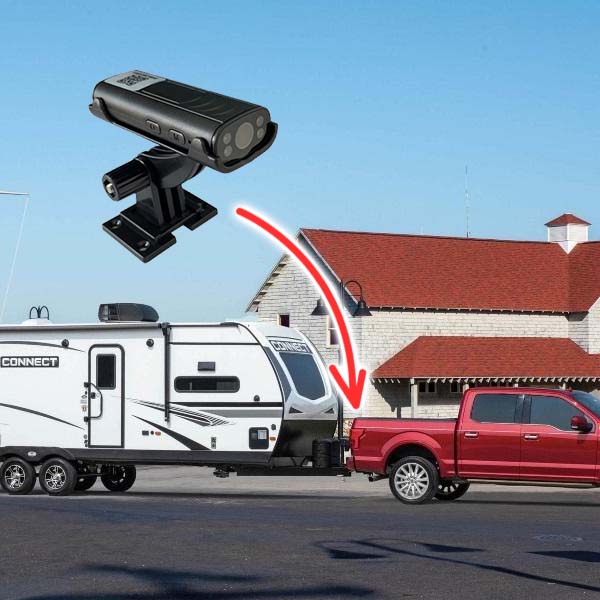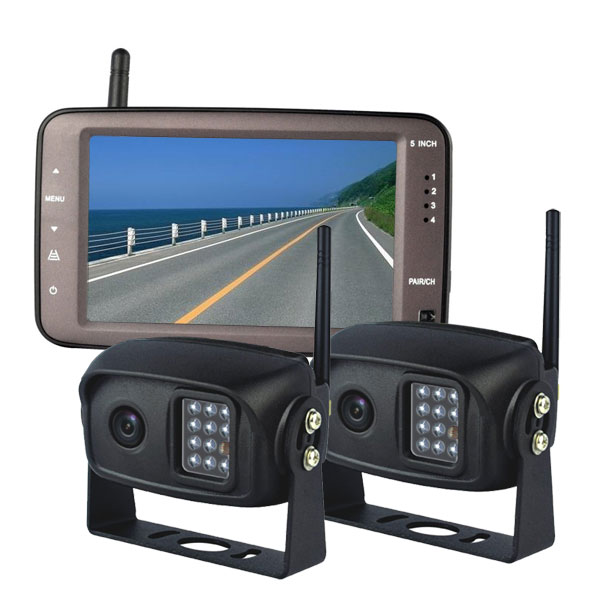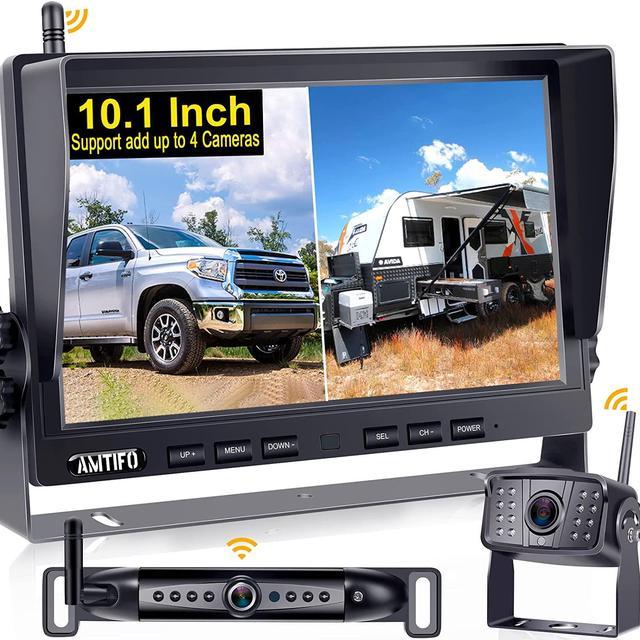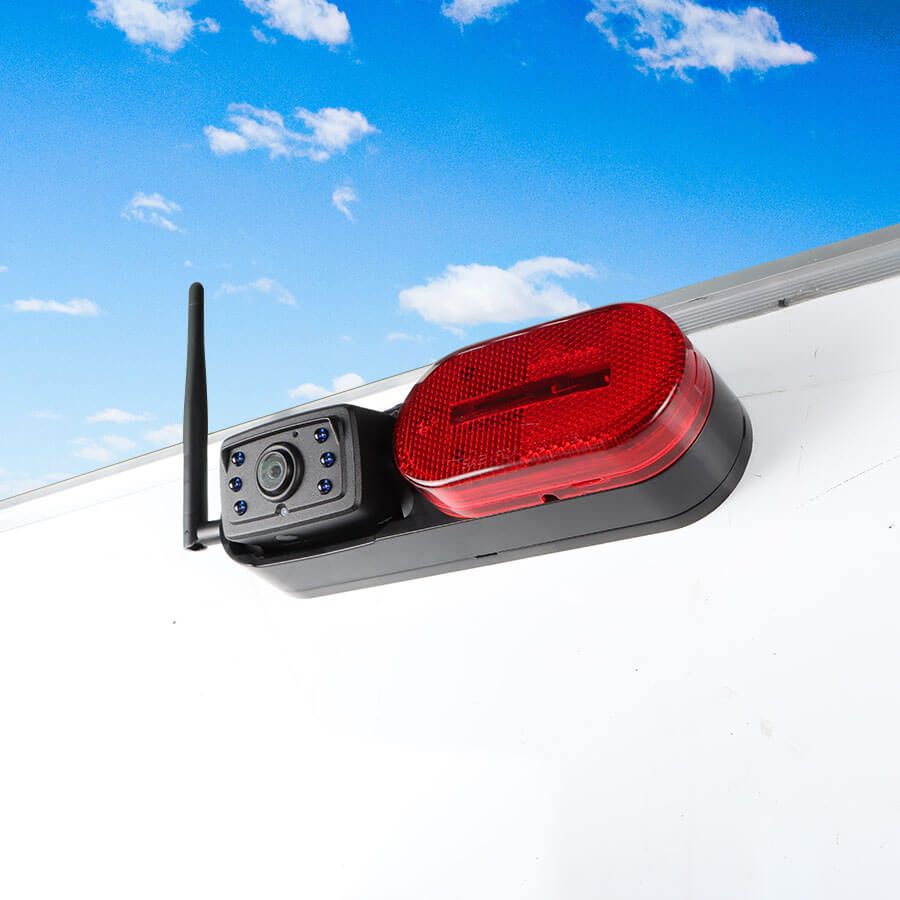Recreational vehicles (RVs) bring the comfort of home to the open road. However, their size can make maneuvering and reversing a challenge, especially for new drivers. An RV backup camera is an essential tool that provides visibility and confidence while on the move. This article explores the top picks for RV backup cameras, helping you choose a system that suits your travel needs.
Importance of Backup Cameras for Safe RV Travel
Enhancing Visibility for Safer Maneuvers
Rear visibility in large vehicles like RVs is often limited. A backup camera offers an essential view of the space behind your RV, significantly reducing blind spots. This enhancement allows you to reverse and park safely, helping to prevent accidents and damage to your vehicle or surrounding obstacles.
Increasing Confidence and Peace of Mind
For many RV enthusiasts, particularly those new to the lifestyle, reversing such a large vehicle can be daunting. Installing a backup camera boosts confidence, making the experience less stressful. Knowing that you have a clear view of what’s behind you provides peace of mind, making your adventures more enjoyable.

Choosing the Right Camera for Your RV Size and Type
Considering the Size and Layout of Your RV
When selecting a backup camera, the size and layout of your RV play crucial roles. You want a camera system that provides a comprehensive view, so consider the camera’s angle and range. A wider lens is best for large vehicles, ensuring you can see everything behind you.
Wired vs. Wireless Systems
Backup cameras come in wired and wireless configurations. Wired systems are typically more reliable and offer higher quality video but involve a more complex installation process. In contrast, wireless cameras are easier to install but may suffer from signals interference. Consider the level of installation you’re comfortable with and the reliability you need when choosing between wired and wireless.
High-Definition Cameras for Clarity and Detail
The Importance of Image Quality
Clarity is key when it comes to backup cameras. High-definition (HD) cameras provide sharper images, allowing you to see more detail. This can be crucial for spotting small or low-lying obstacles that could otherwise lead to a collision or scraping.
Selecting the Right Resolution
Camera resolution is measured in pixels, with higher numbers indicating better quality. Look for cameras offering at least 720p for a clear view; however, 1080p or higher is ideal for the best detail, ensuring you can see everything clearly, including at dusk or dawn.

Robust Cameras for All Weather Conditions
Weatherproofing Features
RVs are built to travel through various climates, and backup cameras should be able to withstand these conditions. Check for weatherproof ratings like IP67 or IP68, which indicate that the camera is protected against dust and water, ensuring it stays functional no matter the weather.
Night Vision Capability
Visibility is often worse at night, so it’s vital that your backup camera has night vision capabilities. Infrared (IR) LEDs built into the camera can illuminate the area behind your RV in low light conditions, providing a clear image even in complete darkness.
Extra Features for Enhanced Usability
Parking Guidelines and Sensors
Some backup cameras include on-screen parking guidelines, offering an added layer of assistance for tricky maneuvers. Also, consider models with built-in sensors that alert you to objects in your path. These features can greatly assist in avoiding obstacles while parking or backing up.
Integrated Systems with GPS and Multimedia
For a comprehensive tech upgrade, some backup cameras come integrated with GPS and multimedia functionality. This combination can declutter your dashboard by reducing the number of separate devices needed, and streamline your navigation and reversing process with a single, multi-use display.

Reliable Brands and Latest Models
Sticking with Reputable Brands
When investing in a backup camera, it’s wise to choose from reputable brands with a track record of quality and customer service. Brands like Garmin, Furrion, and Rear View Safety have established reputations for producing durable and reliable backup camera systems for RVs.
Latest Models with Cutting-edge Technology
Stay updated with the latest models that incorporate the newest tech advancements. Features like smartphone integration, touch screen controls, and digital video recording are becoming more common and provide an extra layer of convenience and security. The latest models may also offer improved image sensors, wireless transmission range, and user-friendly interfaces.
Installation and Maintenance Tips for Longevity
Expert Installation Services
Proper installation is key to ensuring your backup camera functions effectively. If you’re not confident in your ability to install the camera yourself, consider using professional services. Experts can ensure secure mounting, optimal camera placement, and correct wiring, which is particularly important for wired systems.
Regular Maintenance Checks
Once installed, perform regular checks to keep your backup camera in top condition. Clean the lens to maintain image clarity, check for any exposed or damaged wires, and make sure the camera stays firmly in its mount. Regular maintenance will extend the life of your camera and ensure it’s ready whenever you hit the road.
Smart Shopping: Balancing Cost and Features
Evaluating Budget Against Needs
Backup cameras range in price from affordable to high-end. Determine the essential features you need and balance them against your budget. An expensive camera with numerous extra features might be overkill if you only use your RV occasionally, while a full-time RVer might benefit from a high-end model.
Looking for Deals and Warranties
Look out for deals and promotions when shopping for a backup camera. Purchasing during sales events can save you money. Additionally, check the warranty offered by the manufacturer. A good warranty can provide peace of mind and protection for your investment.
User Reviews and Experiences
Seeking Out Consumer Opinions
User reviews are a valuable resource when choosing a backup camera. Look for reviews from RV users who have already tested the product in real-world conditions. Their insights can highlight the pros and cons that may not be immediately apparent from manufacturer descriptions.
Engaging in RV Communities
RV communities, both online and offline, are forums where you can engage with other enthusiasts. Members often share experiences and can offer personalized recommendations for backup cameras based on your specific RV type and needs.
Integrating Cameras with Other Safety Features
Combining Cameras with Other Safety Systems
For comprehensive safety, integrate your backup camera with other RV safety features such as motion detectors and side-view cameras. Some systems can be combined to provide a 360-degree view around your vehicle, significantly reducing blind spots and increasing overall safety on the road.
Considering Upgrade Possibilities
When selecting your backup camera, consider models that offer the flexibility to add additional cameras or integrate with existing safety systems. This allows for future upgrades as needed and ensures you can adapt your safety features to match the evolution of RV technology.
Preparing for Different Driving Conditions
Cameras for Varied Environments
RV travel can take you through diverse environments – from sunny beaches to snowy mountainsides. Select a backup camera that performs well across different lighting and weather conditions. Features like automatic brightness adjustment and fog resistance can keep your camera functioning optimally in varied scenarios.
Training for Proper Use in All Conditions
Understanding how to interpret the camera’s feed in different conditions can take time. Practice using your backup camera in a range of settings to become accustomed to how objects and distances appear on screen. Properly interpreting the camera’s feed can make all the difference when navigating through tight campgrounds or backing into an RV site under less-than-ideal conditions.
Having a reliable backup camera system can turn stressful reversing attempts into a breeze, allowing you to enjoy your RV travels with less worry about what’s out of sight. By assessing your RV’s size, choosing between wired and wireless setups, and considering essential features such as HD quality, weather resistance, and night vision, you can find the ideal backup camera. Extra features like parking sensors and integrated navigation can further enhance your driving experience. With these considerations in mind, you can select from the top picks on the market and ensure smooth sailing—or rather, smooth driving—on your RV adventures. Whether you’re a seasoned traveler or embarking on your first journey, the right backup camera will provide you with confidence as you hit the road.
